Contents
Guide
Pagebreaks of the print version

The author and publisher have provided this e-book to you for your personal use only. You may not make this e-book publicly available in any way. Copyright infringement is against the law. If you believe the copy of this e-book you are reading infringes on the authors copyright, please notify the publisher at: us.macmillanusa.com/piracy.
For Josef and Olivia
R EINHARD F RIEDL
For Tex Poole (19262020),
whose noble heart gave out aged ninety-three
G ERT R EIFARTH
You always hear of people who lost their mind because of love. But there are also many who lost love because of their mind.
J EAN P AUL, novelist
I had explored the mysteries of the brain, and it was time to devote as much academic rigor and hard science to exploring the secrets of the heart.
J AMES R. D OTY, clinical professor of neurosurgery at Stanford, and the founder and director of the Center for Compassion and Altruism Research and Education
 Ba-Boom, Ba-Boom, Ba-Boom
Ba-Boom, Ba-Boom, Ba-BoomMost of the time you dont hear it, but if your heartbeat were suddenly to stop, youd stop too. You live from one beat to the next. In between, death resides. If after one heartbeat there isnt another, the clock of life stands still. It might happen while were sleepingor shopping. None of us knows the hour of our death.
Your heartbeat is my profession. Sixty to eighty times per minute, this sound creates life. Most hearts beat calmly and strongly, some in a constant rush. Even if the heart stumbles occasionally, it always tries to go on. I have seen many hearts laboring with their last ounce of strength. The heart knows no weekend, no holiday. On your seventy-fifth birthday, it will have beaten about three billion times. It started its work eight months before your birth, twenty-two days after procreation. The heart is the first organ to develop, long before the brain and the first breath. Nothing works without the heart. It throbs through the years and decades, unnoticeduntil something ceases to function. Or until a high-tech scan, by accident, discovers a defect that has not yet been felt.
Afflictions of the heart are always dramatic. A pain in the chest is completely different from a pain in the hip. We perceive everything to do with the heart as an attack on our lives, on our inviolability. Even if later it turns out not to be life-threatening, an aching heart is a cause for concern and often triggers a fear of dying. A headache can also be a harbinger of danger; it can eventually lead to death by stroke or brain hemorrhage. Yet a severe headache worries us less than a light pressure in the chest. Deep inside, human beings sense that the heart is the source of all life.
As a heart surgeon I have held thousands of hearts in my hands. I have operated on premature babies and repaired the heart valves of patients well advanced in years. I have implanted artificial hearts and stitched up knife wounds to the heart. As an organ, the heart has been investigated down to its smallest parts. We seem to know everything about itand yet we know nothing. Every week there are hundreds of new scientific findings published about this organ that has not changed since Homo sapiens emerged 300,000 years ago. It seems that the French philosopher and mathematician Blaise Pascal is still correct: The heart has its reasons of which reason knows nothing.
Independently, separated by time and space, without knowledge of each other and despite different languages, all human beings draw hearts to express love, both earthly and celestial. Does this point to an inner truth anchored deeply in every human being? Or merely to a desire that we all share unconsciously? All great cultures, from the Stone Age to the present, and all religions and spiritual movements perceived and continue to perceive the heart as a symbol, as the biological center for love, compassion, joy, courage, strength, truth, and wisdom. But in the age of heart transplants and data migration, the magic of the heart seems to have vanishedas if it could not withstand our mechanized world. But maybe those qualities are precisely what we need for a more humane future.
In Saint-Exuprys The Little Prince, the fox says: One sees clearly only with the heart. Yet so far we have not found eyes on our biological heart, nor sensors for compassion and love, nor a pump discharging courage and strength. However, we all experience these heart qualities as an inner reality that guides our lives. How, then, are these related to our physical, pumping heart? What can science reveal about this other heart and its dimensions of consciousness? And how do these things influence illnesses and therapy?
Aristotle believed the heart rather than the brain was the source of all emotions. Modern neuroscience argues that love originates in the brain. Has it stolen the secrets of love away from the heart? And is our language only a memorybut of what? Or is it just trivial metaphors when we speak of someone becoming close to our heart, of closing off our heart to someone or inviting them into it, of losing or taking heart, of a weight felt on or being taken off our heart, of a broken heart or something that makes our heart stop, of stealing someones heart or giving ours away, of wearing our heart on our sleeve, which is better than something saddening it or making it sink? What is dear to the hearts heart? Some of these symptoms are indeed taken to a cardiologistfor example when they manifest as cardiac arrhythmia or angina pectoris. Doctor, I feel as if theres a stone weighing on my chest. In the past I took care of these people solely as a surgeon; today I am interested in the whole human being.
Heart surgeons can put hearts to sleep and make them beatbut they usually dont speak with a lot of heart, rather in terms of mechanics: heart-lung machines, ECG, ultrasound, or even artificial hearts. And of course they speak with their colleaguesassistant doctors, anesthetists, cardio technicians, surgical nurses. A heart operation is not an intimate matter. The heart, hidden deeply in the chest and well protected by the ribs, is opened up to the glaring light of high-tech operating rooms under the concentrated gaze of many pairs of eyes. To the heart surgeon, it is first of all a pump they have to repair, the motor of life. In contrast to all other doctors, heart surgeons dont only know this motors functions through video images and data generated with the help of ultrasound or computed tomography (CT) scans, intracardiac catheters, or magnetic resonance imaging (MRI). Even in this era of high-tech medicine, it makes a big difference to ones understanding of this organ to see it with ones own eyes and touch it with ones own handsrather than just observe it secondhand via monitors.
As a heart surgeon, I reach deep into the chest and put hand to heart. A heart is not used to such contact. Hearts can react very sensitively to touch. Some get a fright and respond with arrhythmia. Yet even sick hearts are strong, so powerful that their inherent strength astonishes me time and time again. When they lie in my hand it feels as if they are the essence of life, the pure and absolute will to live. For me, every heart is its own being; every heart has its own appearance. I never know what is about to be revealed to me when I cut the skin with a scalpel and open the chest. Some hearts are very lively and muscular, others a little chubby with clearly visible fat. Some betray their long path through life and appear tired and spent. Yet they all have one thing in common: they like nothing more than to beat.


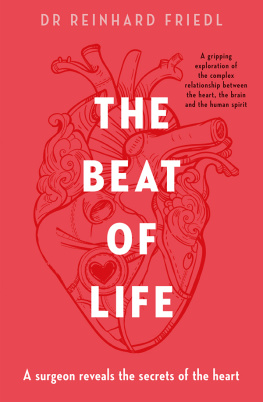
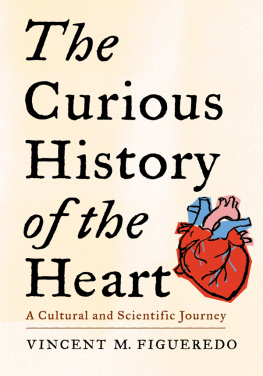
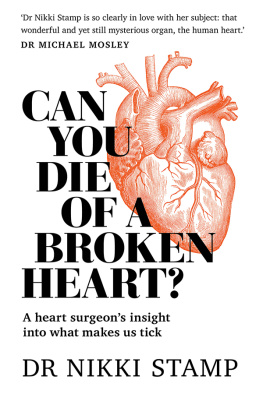
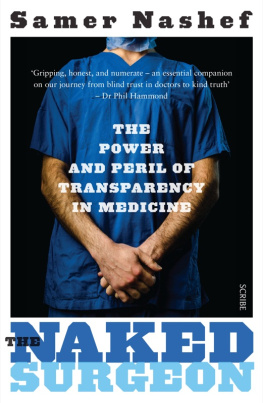
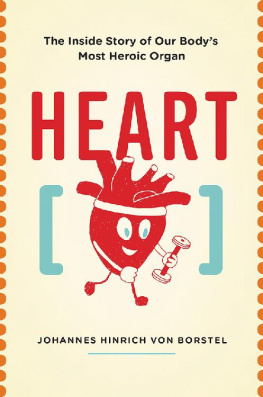
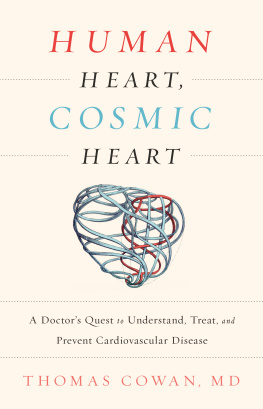
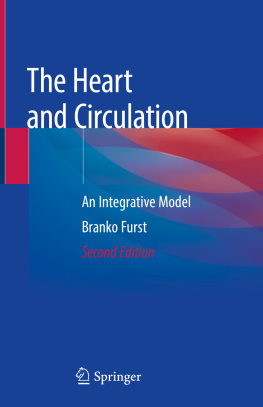
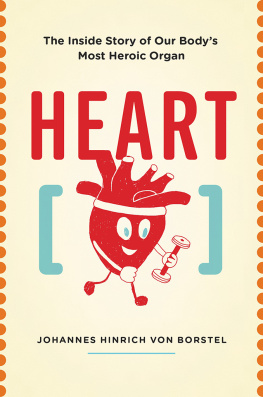
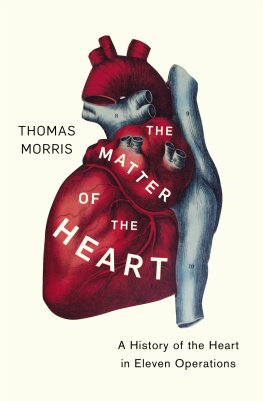
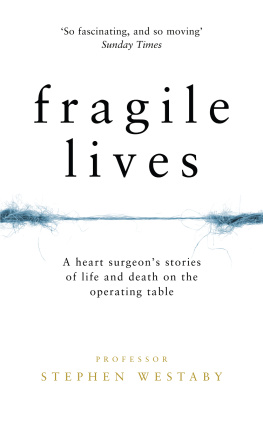
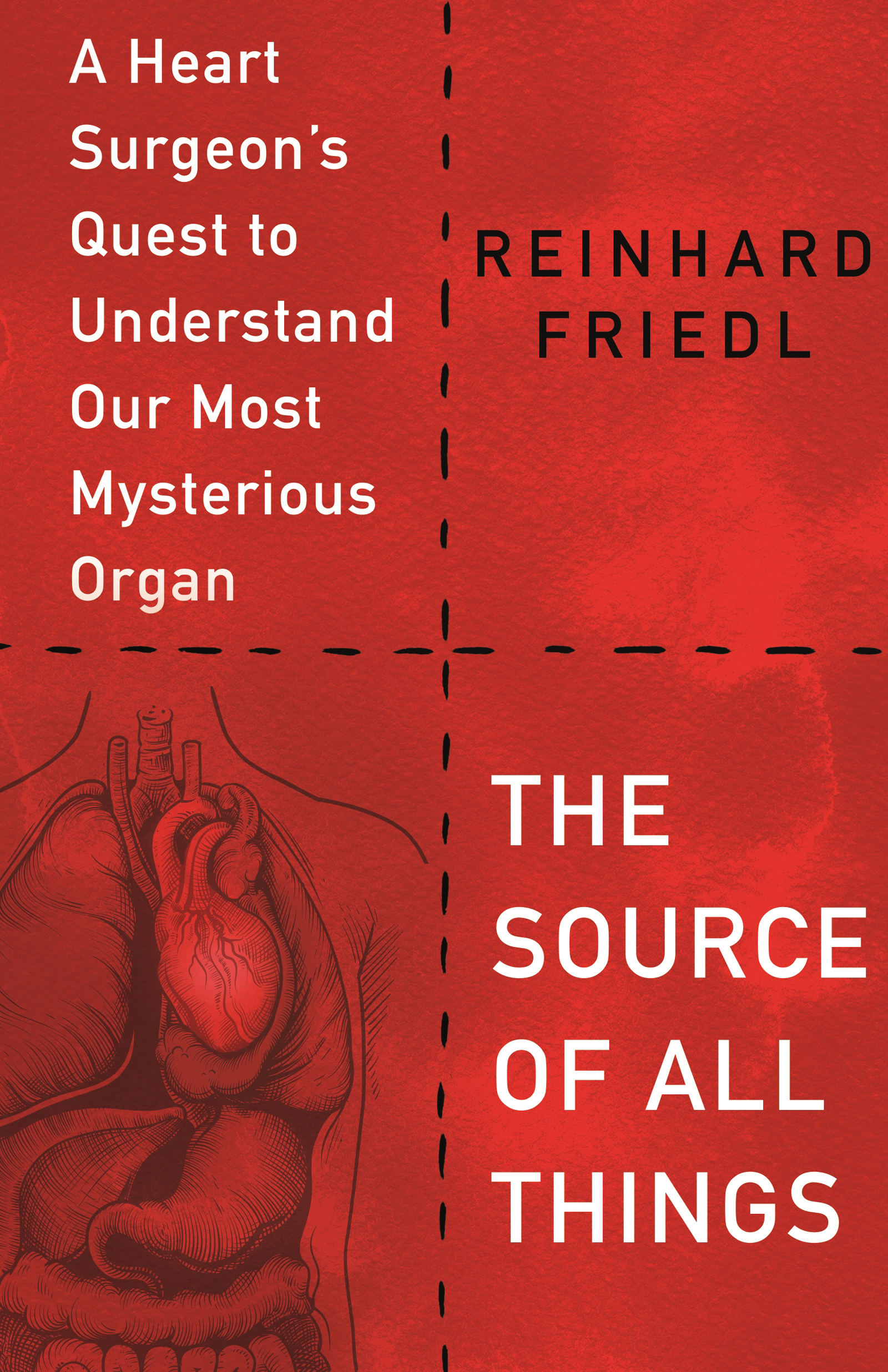

 Ba-Boom, Ba-Boom, Ba-Boom
Ba-Boom, Ba-Boom, Ba-Boom